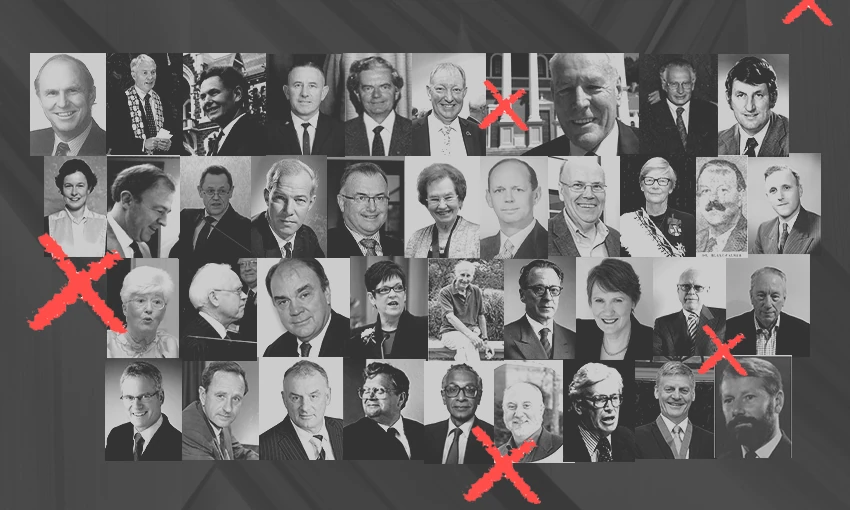Aaron Smale: An apology both sincere and hollow
A leading investigative journalist reflects on a day that victims of state and church abuse have fought for their whole lives.
The sexual harm helpline can be accessed free, 24 hours a day, 7 days a week by phone, text, website, online chat and email.
The 112 politicians and senior public servants who oversaw decades of harm and neglect, plus those who have been asked to apologise.

The final report of the Royal Commission of Inquiry into Abuse in Care finds that a successive list of senior ministers and public servants were at fault for allowing, or failing to stop, an epidemic of abuse in foster homes, borstals, boot camps and other state-run institutions.
The list of people found at fault includes successive ministers of education, health and social development, commissioners of police, directors-general of health, directors of mental health and the chief executives of several ministries. The Royal Commission report does not list individual names of people at fault, only the job titles.
The Spinoff has been able to verify 112 people who served in those roles from 1950 to 1999. Much of the harm started before 1950 and has continued to present day, but this list is limited to those years to match the Royal Commission’s period of inquiry.
These individuals were found to have enabled the abuse through a range of actions, including: implementing harmful policies, failing to investigate abuse, failing to properly train staff, failing to keep children safe, illegally detaining young people, ignoring the perspectives of communities affected, contributing to abusive environments, upholding institutional and structural racism, failing to address racist policies, alienating Māori from their whānau and failing to provide redress for survivors.
Obviously, these politicians and public servants were not individuals who carried out most of the day-to-day physical, sexual, mental and emotional abuse on thousands of vulnerable young people. Nor were they the only people in positions of power who contributed to harm. But as the most senior leaders of powerful government entities, they held the ultimate responsibility.
Successive ministers of social development (and previous equivalent roles, including minister for social welfare and minister for social security)
Successive chief executives of the ministry for social development (and previous equivalent roles, including director-general of social welfare and superintendent of the child welfare division of the Department of Education)
Successive ministers of health
Successive directors-general of health
Successive directors of mental health at the Ministry of Health (and previous equivalent roles, including director of mental hygiene).
Successive ministers of education
Successive chief executives of the Ministry of Education (and previous equivalent roles, including director-general of education and secretary of education).
Successive commissioners of police
Successive public service commissioners (and previous equivalent roles, including state services commissioner)
The report also finds that successive governments, including ministers, were at fault. There were 224 people who served as cabinet ministers between 1950 and 1999 (this number includes people who were ministers in multiple governments).
The Royal Commission also found fault with six churches and their related entities. The report names the institutions as a whole, rather than specific roles or job titles.
The Royal Commission recommended that public acknowledgements and apologies for historical abuse and neglect be made by the most senior leaders of a list of relevant churches, government agencies and professional organisations.
These are people who currently hold those roles: